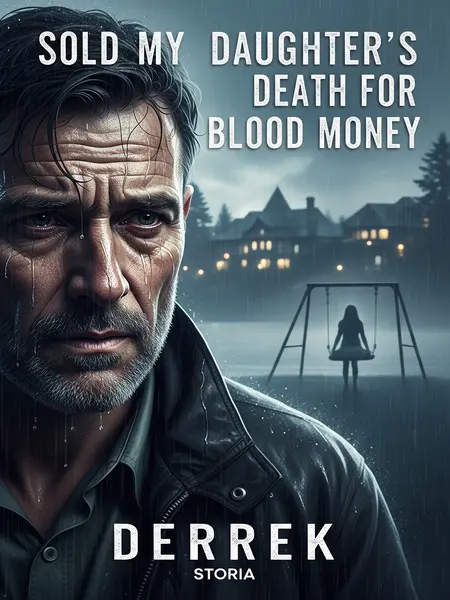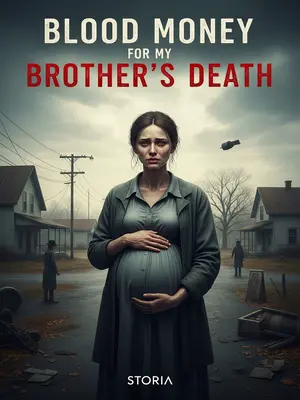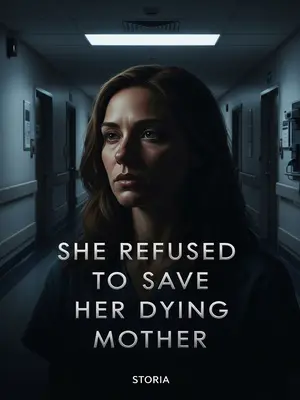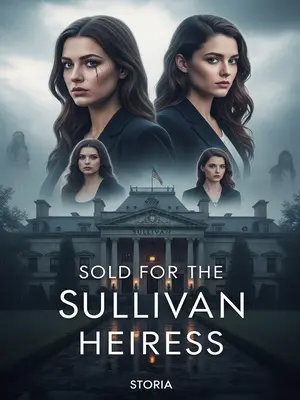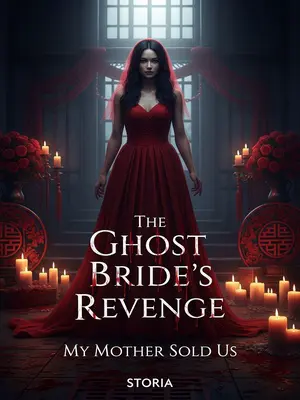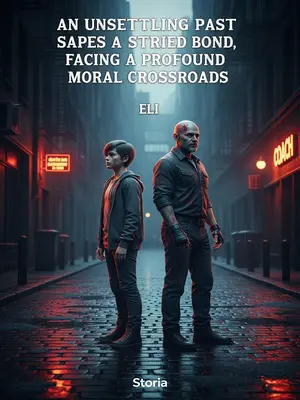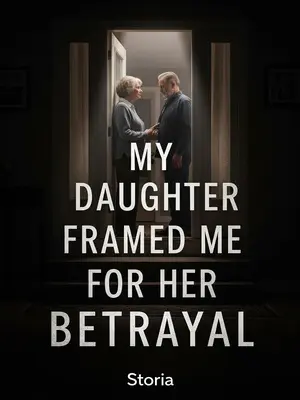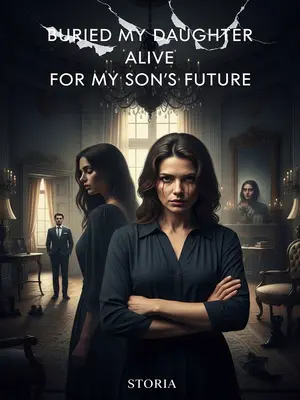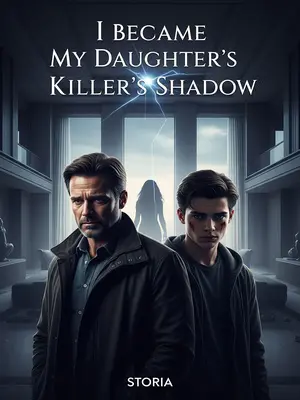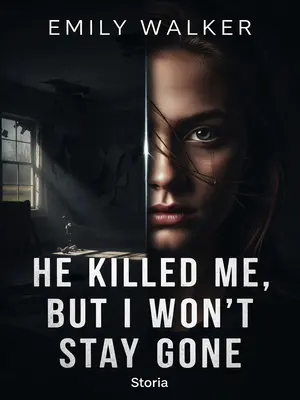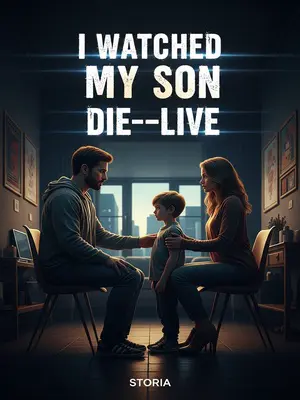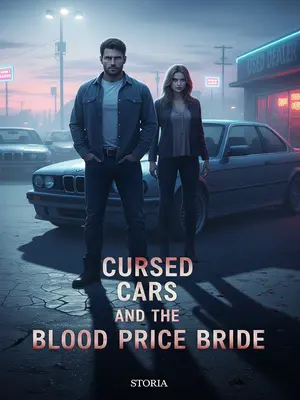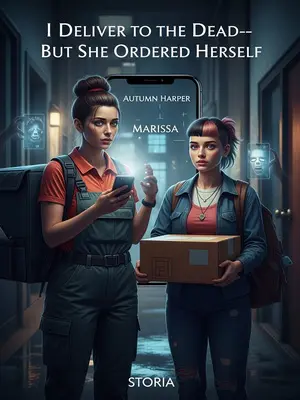Chapter 4: The Vanishing and the Warehouse
According to the rules, if no evidence of my crime is found in time, I should be released.
I could hear the clatter of paperwork, the shuffle of angry footsteps, the impatient sighs of lawyers and officers. Red tape, always there to catch you when the law ran out of reasons to hold you.
Amber Carlson's parents and several others glared at me with hatred, but in front of the police, no matter how much they despised me, they couldn't do anything.
They whispered furiously to each other, cellphones buzzing with frantic calls—private investigators, lawyers, news outlets, anyone who might tip the balance. I ignored them, keeping my eyes forward.
I swaggered out past them, and someone immediately followed me.
I kept my shoulders squared, my pace steady, as if I belonged in that hallway. I could feel eyes boring into my back—rage, fear, suspicion all bundled into one tight knot of tension.
I wasn't sure if it was the police from the interrogation room, the Carlson family, or the families of the other two girls.
Their footsteps echoed down the corridor, matching mine, until I ducked out a side door into the early summer air. I took a deep breath, feeling the smog and honeysuckle fill my lungs.
But it didn't matter. I still drove my cab as usual to the busy school gate.
I thumbed the worn steering wheel of my faded yellow Crown Vic, radio tuned to a classic rock station. A faded air freshener—pine tree—swung from the rearview, brushing against the old Uber sticker I never bothered to peel off. Maple Heights High loomed up ahead, banners flapping in the breeze, the smell of fresh-mown grass and exhaust blending together in the afternoon sun.
After the exam, the crowds here were especially large, and I soon picked up several fares.
Parents waved frantically, students poured out clutching Scantrons and water bottles. I hauled luggage, offered bottled water, listened to anxious chatter about test sections and college dreams.
That's right, I'm just a lowly taxi driver.
Nobody gave me a second glance—not the soccer moms in their minivans, not the students texting furiously, not the teachers hustling out with grading to do. I was invisible, as always.
Outside the school, all the parents accompanied their kids to the test, willing to spend money for their children and for the SATs.
The sidewalk was a parade of Starbucks cups and worry, parents trading anxious glances, carpooling kids in and out. I caught fragments of conversation—test prep, scholarships, Ivy League dreams—as I loaded trunks and ferried fares across town.
After a day, I made a decent sum.
I counted my bills at a red light, thinking about groceries, rent, maybe a little extra for a nicer urn. I wondered, briefly, if Natalie would have wanted anything from the bakery on Main Street.
But as soon as I entered my apartment building, I was struck hard on the head.
The world spun, keys flying from my grip, the scratchy carpet burning my cheek. I tasted blood, heard a low laugh, and then nothing but darkness.
Holding my head, I thought to myself: as expected, they wouldn't give up so easily.
Even as the pain radiated, I managed a wry smile. The world might forget Natalie, but those parents? Never. They were as relentless as grief itself.
A bucket of cold water was dumped over me. My head throbbing, I opened my eyes to find myself lying on a cold, damp floor.
The scent of mold and rust filled my nose. My hands were tied, wrists aching. Somewhere, water dripped steadily, echoing in the darkness.
Looking around, it was probably an abandoned warehouse. Graffiti covered the walls—mostly tags and cartoon dicks—while broken pallets and old soda cans littered the corners.
Pallets stacked against the walls, shattered glass glittering on the concrete. The air buzzed with mosquitoes and the faint hum of traffic from the highway nearby.
Suddenly, my scalp burned. The thug behind me grabbed my hair, forcing me to look at the man sitting in front of me.
"Now that you're awake, talk. Where is my daughter?"
His suit probably cost more than my cab, but he wore it like armor, watch flashing every time he flexed his fist. He looked like every CEO on the cover of Forbes, except his eyes were wild, bloodshot with sleepless rage.
I played dumb, staring straight at him. "Mr. Carlson, I already explained at the police station, I don't—"
My voice sounded thick, mouth full of blood and spit. I barely got the words out before the next blow landed.
Before I could finish, the man in the chair frowned, and his men understood, suddenly punching me hard in the nose. Pain and numbness surged together.
The metallic taste of blood filled my mouth. My mind buzzed, and my vision went dark, then bright again.
I let out a harsh cough, spitting red onto the concrete. The world narrowed to pain, heat radiating from my broken nose, the pounding in my skull drowning out every other sound.
"You know, I have no patience."
His voice was cold as ice. He leaned forward, eyes glinting, the calm menace of a man used to getting what he wants with money and threats.
He lifted his foot, those shiny, obviously expensive dress shoes grinding into the back of my hand, the fine patterns on the sole scraping the skin off bit by bit.
The pressure was excruciating, the pain white-hot. My jaw clenched, refusing to cry out, even as my vision blurred with tears. In that moment, I realized how little separated people like him from animals when their own blood was at stake.
Mr. Carlson seemed convinced that, when pushed to the limits of pain, a person would finally give up what he wanted.
But I just stared back, daring him to see what he’d made of all of us, the living and the dead alike. He leaned in, voice low: "Last chance. Where is she?" I smiled through the blood. "You’ll never find her before I do."
